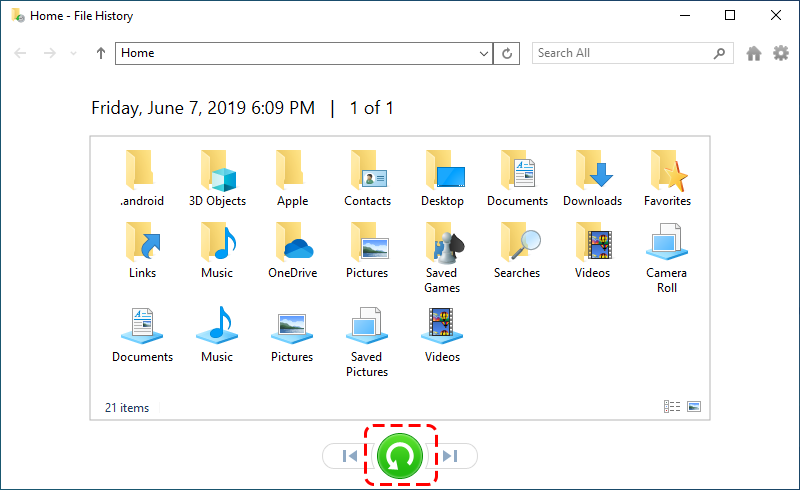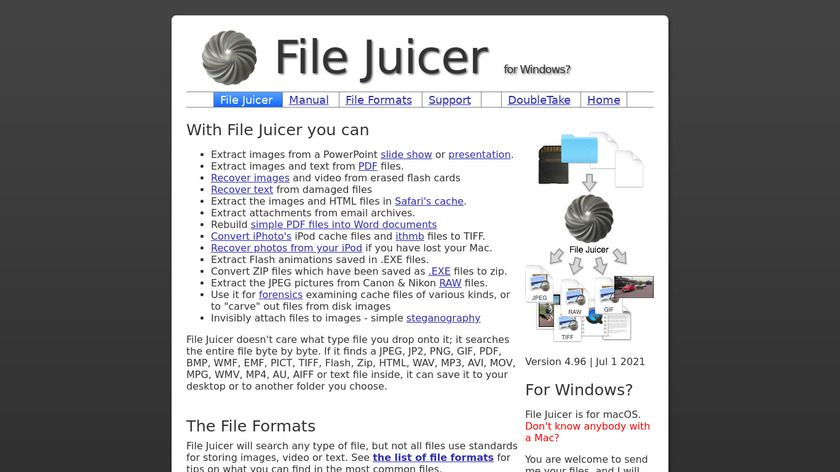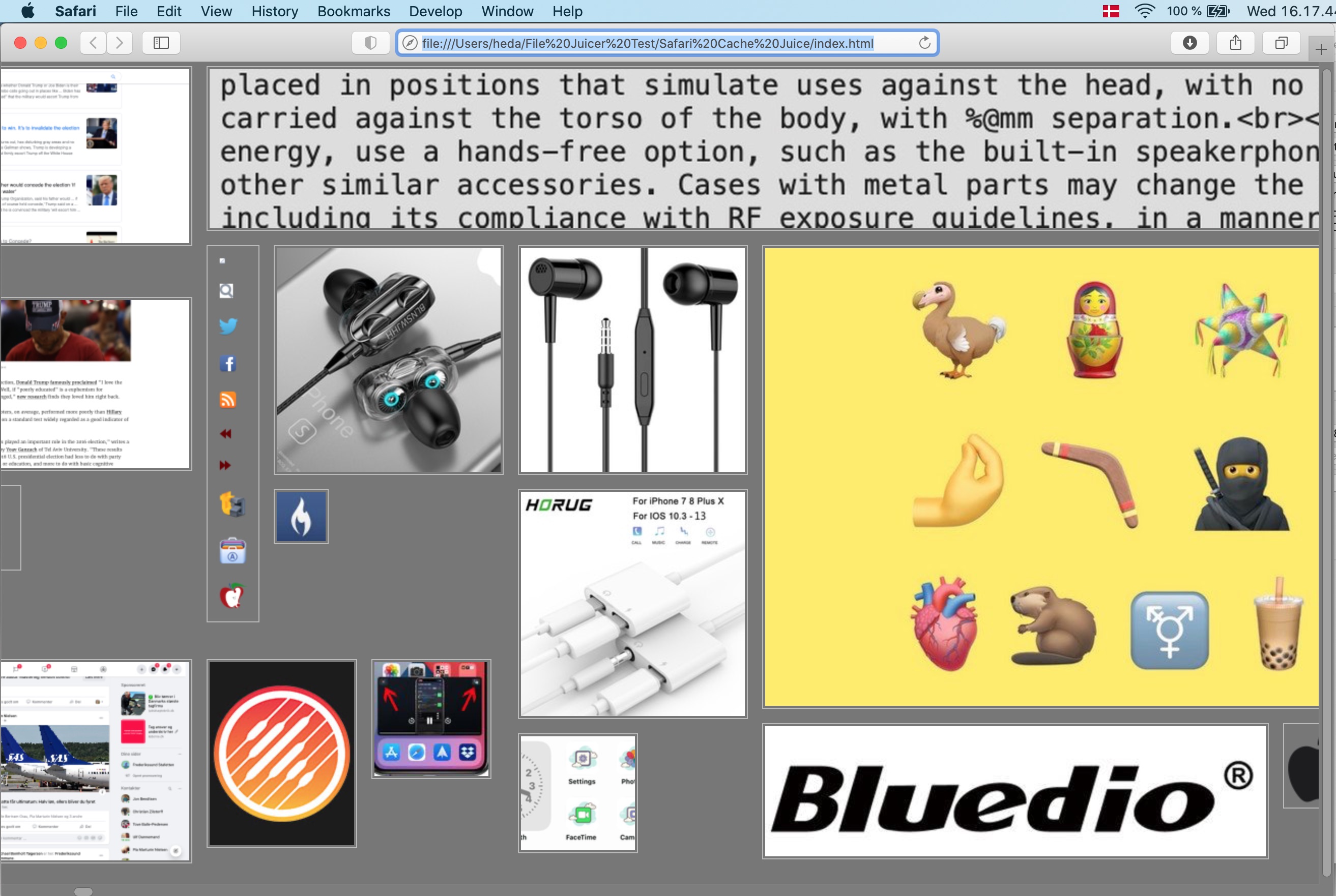

- #File juicer recently deleted how to#
- #File juicer recently deleted update#
- #File juicer recently deleted software#
- #File juicer recently deleted professional#
Choose files you want to recover, right-click the mouse, and choose Copy To from appeared context menu. If files can be viewed without errors, then they can be recovered correctly in the end. Step 3: Preview files and check whether they can be recovered correctly.ĭouble-click a file in the scanning result, and a preview window will pop up, showing file content.
#File juicer recently deleted software#
After checking all of the three options, the software will carry out a complete and deep scanning for the selected partition. Recover Deleted Files, Complete Recovery and Search For Known File Types. Step 2: Click Start button and the software will start scanning the partition to look for lost files.ĭiskGenius provides three recovery options, i.e.


Step 1: Open DiskGenius and choose the partition where deleted files existed. The following explains the process of recovering deleted and lost files with DiskGenius. This software provides file recovery function which can deal with all types of data loss problems.
#File juicer recently deleted professional#
DiskGenius is a professional data recovery program, and it can recover lost data from different devices such as computer, USB drive, hard drive, external hard drive, SD card, camera, voice recorder and so on. When it comes to recover deleted data, it is recommended to use a recovery program that has very good recovery result to do the job. How can I recover recently deleted files? As long as the disk space where recently deleted files existed hasn't been overwritten by other data, deleted files can be recovered by data recovery software. Does that mean deleted files are lost forever? Speaking of where deleted files go, they are not completely erased from hard drive even when you empty the Recycle Bin. However, if files are further deleted from Recycle Bin or files are deleted from USB disks, they cannot be restored in this way anymore. In general, when files are deleted from hard drive, we can restore them from Recycle Bin. If important files cannot be restored properly, they have to face the huge losses.
#File juicer recently deleted how to#
However, some people even have no idea on how to solve this problem. When meeting this problem, some people would like to spend a lot of money to get help from technical data recovery staff. Deleting important files accidentally causes huge trouble to people. When using these devices, it is unavoidable to operate by accident, for example, users may delete some important files by mistake. I'd also like to know if anyone has comments on either of the two approaches.No matter in work or daily life, people use many kinds of devices to store various files like photos, documents, videos, audios, etc. If anyone could figure that out, I'd help me immensely as it would meet the initial requirements! To circumvent this, I'd have to store the actual list of files instead of the amount, but I haven't been able to make that work using shell variables. Unfortunately, this solution won't report anything if the same amount of files have been created and deleted during an interval, but that's not a huge issue for my use case. If then echo "$DEL_SCAN_DEL_AMOUNT deleted files" fi
#File juicer recently deleted update#
Then we can store the difference between the two in another variable and update the original amount.ĭEL_SCAN_DEL_AMOUNT=$(($DEL_SCAN_ORIG_AMOUNT - $DEL_SCAN_NEW_AMOUNT)) DEL_SCAN_ORIG_AMOUNT=$DEL_SCAN_NEW_AMOUNT.We can then run the same command again later to get the updated number of files.ĭEL_SCAN_NEW_AMOUNT=$(find /some/directory -type f | wc -l).The result can then easily be stored in a shell or script variable, without requiring write access to the file system.ĭEL_SCAN_ORIG_AMOUNT=$(find /some/directory -type f | wc -l) A simple find command piped into wc to count the original number of files in the target directory (recursively).This is the solution I ended up implementing: Unfortunately, that won't really work for my use-case I must be able to provide a solution for existing, "basic" kernels and directories.Īs this seems virtually impossible to accomplish, I've been able to negotiate and relax the requirements down to listing the amount of files that were recently deleted from a directory, recursively if possible. debugfs seems like an interesting solution to the initial requirements, but it is a bit overkill for the simple & light solution I was looking for if I'm understanding correctly, the kernel must be built with debugfs support and the target directory must be in a debugfs mount.


 0 kommentar(er)
0 kommentar(er)
